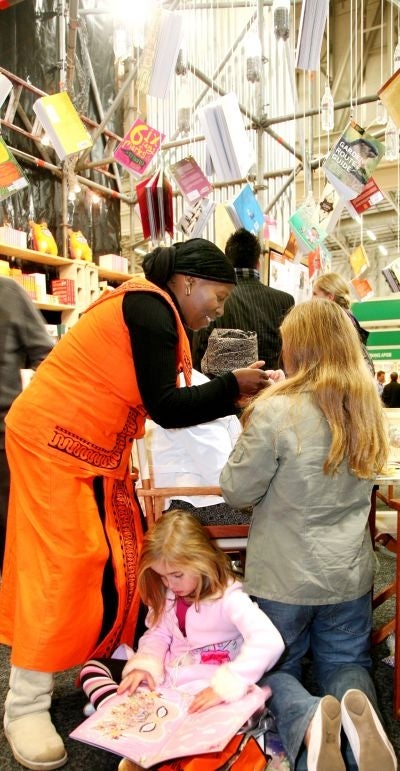African book industry vibrant, but challenges remain

Getting parents to buy children books instead of toy guns and cars - and enticing readers in outlets like hair salons - are just two of the challenges facing Africa's publishers.
The book business is vibrant on the continent, industry executives told a trade session on African publishing at the Cape Town International Book Fair, the largest in sub-Saharan Africa, which ends Monday.
But publishers said they also face the challenges of few leisure readers, a primarily urban reach, small local print runs and a heavy reliance on skills-enhancing textbooks over novels.
"The problems are all the same. They are worse in different parts of the continent but they all the same," said Brian Wafawarowa, chair of the Publishers Association of South Africa.
South Africa's book industry is sub-Saharan Africa's biggest, with revenue in 2009 growing to 1.6 billion rand (218 million dollars, 167 million euros).
But glossy bookstores are rare outside major cities, and non-fiction accounts for 45 percent of sales. Most fiction titles are imported from abroad.
While South Africa has the continent's largest economy, it is also one of the world's most unequal societies, with many book-free households and few active readers.
"I think that challenge is huge. Here in South Africa, people argue that about four percent of the population are active, lifetime, habitual readers, and that is very, very small," Wafawarowa, whose association has 185 members, told AFP.
In Nigeria, authors have ditched publishers to self-publish at low cost, shrugging off editors, 10 percent royalties and quality-control checks.
"Most Nigerian authors go for the self-publishing set-up," said Bibi Bakare-Yusuf of Cassava Republic Press, which competes in a market where educational books make up 90 percent of sales.
But, as in Ghana - where books are visible but content was highlighted as a challenge - the trend has led to low-quality products.
The result has also distorted pricing, with books selling at less than five to eight dollars seen as too expensive, Bakare-Yusuf said.
The sales model in Nigeria largely bypasses book stores, which make up just 10 percent of Cassava's sales. Instead, mobile sellers approach offices, restaurants and police stations, where they sell 30 percent of the stock.
A quarter of sales are in book stands in non-traditional outlets like hairdressers, cafes, boutiques and spas.
Bakare-Yusuf said Africa's most populous country does not lack a desire to read.
"Our major problem is not a reading culture, it's a book-buying culture. Because often people buy one book and 20 people read that same old book," she said.
"So the task for us is how do we get people to buy books - to own it, to see books as (an) object of beauty, as a commodity."
Kenya has branched out into regional markets, with job competitiveness driving a demand for skills-focused books and an effective courier service easing distribution challenges.
"On the down side ... there has been too much concentration on educational publishers at the expense of fiction, especially for adults," said Peter Kiboi of Focus Publishers.
As in Zimbabwe, political turmoil wiped out Uganda's book world after the rise of former dictator Idi Amin in 1971 erased a post-independence boom, but steady growth has returned in the past two decades.
"In most urban centres in Uganda, you can now at least (find) a book shop there which is stocked," Martin Okia of Netmedia Publishers LTD told the session.
Like many other African countries, Uganda faces a non-reading culture, a focus on academic sales and low purchasing power, but Okia questioned the choices by those who could afford to buy books.
"They will rather buy their children expensive toy guns and cars," he said. "They don't buy them books. So sometimes you wonder whether it's low purchasing power or it's just a habit."
Join our commenting forum
Join thought-provoking conversations, follow other Independent readers and see their replies
Comments
Bookmark popover
Removed from bookmarks